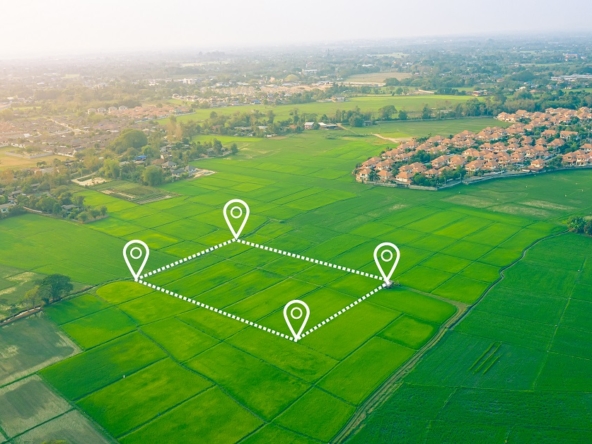When investing in real estate in Kenya, many property buyers focus on the location, price, and potential return on investment. However, one crucial element that is often overlooked is property taxes and fees. Understanding these costs can help you make better decisions, avoid legal issues, and plan your finances effectively.
At Rehan Properties, we’re committed to helping you not only acquire land and apartments with ease but also understand the financial landscape that comes with property ownership. Here’s a simple, yet detailed guide to help you navigate property taxes and fees in Kenya.
Why Understanding Property Taxes Matters
Property taxes are not just government obligations. They affect your cash flow, the true cost of ownership, and your ability to resell or transfer property. Many buyers are caught off-guard by hidden costs. This guide helps you avoid those surprises.
1. Stamp Duty – What You Must Pay When Transferring Property
Stamp Duty is a mandatory tax charged when land or property is transferred from one person to another.
- Rate:
- 4% for urban properties
- 2% for rural properties
- Who pays? The buyer.
- How it’s calculated: Based on the market value of the property (as assessed by the government valuer).
Tip: Always budget for stamp duty when planning your investment. A Ksh 3 million property in Nairobi would attract Ksh 120,000 in stamp duty.
2. Capital Gains Tax (CGT) – Payable by the Seller
If you’re selling property, you may owe Capital Gains Tax.
- Rate: 15% on the net gain (selling price minus acquisition and improvement costs).
- Who pays? The seller.
- Due: Before transfer of ownership at the Lands Office.
Rehan Properties advises all sellers to keep proper records of improvement and purchase costs to reduce their CGT liability.
3. Land Rates – Ongoing Obligation for Urban Landowners
Land rates are annual payments to the county government for urban land use.
- Paid to: County governments (e.g., Nairobi County, Kajiado County).
- Frequency: Annually or quarterly.
- Non-payment consequences: Penalties, auction of land, and delays in title transfers.
Example: In Nairobi, landowners pay based on the land’s unimproved site value.
4. Land Rent – Applicable for Leasehold Properties
If your property is on leasehold tenure, you must pay land rent to the Ministry of Lands.
- How to check: Your title deed will indicate if the land is leasehold or freehold.
- Rates: Typically range from Ksh 1,000 to Ksh 50,000+ depending on property size and location.
- Failure to pay: Delays in getting land clearance certificates.
Rehan Tip: All our titles are freehold titles.
5. Title Processing and Legal Fees
Besides taxes, there are additional transaction fees involved in property transfers.
Legal Fees
- Charged by your lawyer for handling the sale agreement and registration.
- Governed by the Advocates Remuneration Order.
- Typically ranges from 1% to 2% of the property value.
Registration Fees
- Ksh 500 – 5,000 depending on property type.
- Paid to the Ministry of Lands during title registration.
6. Property Valuation Fees
Before stamp duty is assessed, the government will conduct a valuation.
- Valuation Fee: 0.25% to 1% of property value.
- Handled by a registered government valuer.
7. Survey Fees (For Plots)
If you’re buying a plot, especially in developing towns like Kitengela or Konza, survey fees apply.
- Beaconing: Ranges between Ksh 10,000 – Ksh 30,000.
- Survey fee: Based on plot size and location.
At Rehan Properties, all our plots are fully surveyed and beaconed, and we provide you with all survey maps to avoid resurveying issues.
Frequently Asked Questions (FAQs)
Q: Who is responsible for paying stamp duty in Kenya?
A: The buyer is responsible for stamp duty.
Q: Can I negotiate taxes or fees when buying land?
A: Government taxes like stamp duty and CGT are non-negotiable, but legal and survey fees may be negotiable with your provider.
Q: What happens if I don’t pay land rates?
A: County governments can deny you clearance certificates, impose penalties, or even auction the land.
Final Thoughts
Understanding property taxes and fees in Kenya is essential to ensure a smooth, stress-free transaction. These costs are often overlooked—but not by smart investors. At Rehan Properties, we walk you through every step, from identifying your dream property to ensuring all taxes and fees are properly handled.
Ready to Invest?
Talk to a Rehan advisor today for a free consultation on how to plan for taxes when buying land or apartments. Own your dream property today.
Visit www.rehanproperties.co.ke or call us on +254 111 026 600 to explore land in Kitengela, Konza, and beach apartments in Kikambala—all with ready title deeds and transparent pricing.





